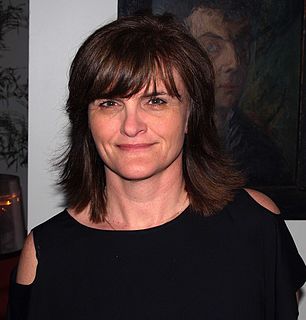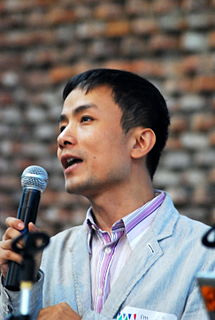A Quote by Lisa See
I am an eighth Chinese, and I come from a large Chinese-American family in Los Angeles.
Related Quotes
If a Chinese plane landed at Los Angeles Airport having just bought down an American military plane, he wouldn't be permitted to leave the next day. So then we developed a framework which should have been acceptable as a concept to the Chinese, namely to express regret for the loss of life and maintain our position that we had a right to fly these missions.
There are photographers who push for war because they make stories. They search for a Chinese who has a more Chinese are than the others and they end up finding one. They have him take a typically Chinese pose and surround him with chinoiseries. What have they captured on their film? A Chinese? Definitely not: the idea of the Chinese.
On the mission I brought a flag from China, I brought the stone sculpture from Hong Kong, and I brought a scroll from Taiwan. And what I wanted to do is, because as I was going up and I am this Chinese-American, I wanted to represent Chinese people from the major population centers around the world where there are a lot of Chinese people. And so, I wanted to bring something from each of those places and so it really wasn't a political thing and I hope people saw it that way. I was born here, I was raised in the U.S., and I'm an American first, but also very proud of my heritage.
There are a lot of Chinese-American designers and Chinese designers who have had an impact a little bit on the American market, but I think it's going to be interesting to watch if, over time, somebody can emerge from China who is based in China, and whether they come and show in Paris, like Rei Kawakubo or Yohji Yamamoto did.
Social media changed Chinese mindset. More and more Chinese intend to embrace freedom of speech and human rights as their birthright, not some imported American privilege. But also, it gave the Chinese a national public sphere for people to, it's like a training of their citizenship, preparing for future democracy.
Sprawl is the American ideal way to develop. I believe that what we're developing in Denver is in no appreciable way different than what we're doing in Los Angeles - did in Los Angeles and are still doing. But I think we have developed the Los Angeles model of city-building, and I think it is unfortunate.
In fact,I believe the reason why the Chinese failed to develop botany and zoology is that the Chinese scholar cannot stare coldly and unemotionally at a fish without immediately thinking of how it tastes in the mouth and wanting to eat it. The reason I don't trust Chinese surgeons is that I am afraid that when a Chinese surgeon cuts up my liver in search of a gall-stone, he may forget about the stone and put my liver in a frying pan.






































